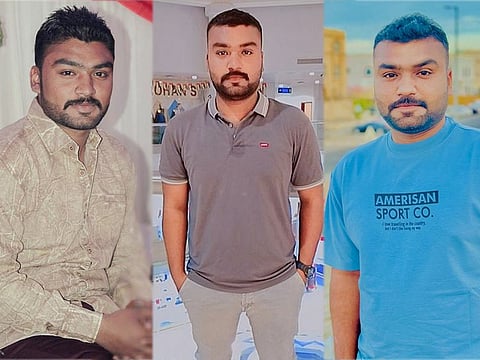From chain-smoker to life-saver: After near-death heart attack, UAE expat, 25, inspires youth to quit smoking
Meet expat whose heart attack last year turned him into a dedicated anti-smoking advocate

Abu Dhabi: At just 25 years, Zubair Qayyum has already faced a life-changing health crisis that many might only expect in their later years—he suffered a heart attack last year.
Having moved to Abu Dhabi five years ago, the Pakistani youth’s journey from a heavy smoker to a health advocate after the near-death experience is sure to inspire anyone looking to quit smoking.
Zubair’s mission is aligned with this year’s theme of World No Tobacco Day, observed on May 31, which focuses on targeting youth creating awareness about harmful tobacco products.
Smoker at 13
Zubair, an automobile technician, had begun smoking at the age of 13 or 14, starting with one or two cigarettes a day. Over the years, this habit worsened.
“I started smoking by joining the youngsters in the village,” he recalled.
“It began as fun, but I didn’t realise how it grew. Over time, I became a chain smoker, smoking over a dozen cigarettes a day. This is a habit that overtakes us slowly, leading to severe health issues.”
Zubair continued his smoking habit even after moving to the UAE. However, the tipping point came when he experienced a chest pain last year, which he initially dismissed as a minor issue.
“I had a mild chest pain and I ignored it, thinking it was just gas trouble due to my eating habits. I never imagined it had something to do with smoking. Later, the pain became severe, and my friends took me to Hospital in Mussaffah. Upon reaching the hospital, I lost consciousness,” Zubair recounted.
How smoking hits heart
At the hospital, doctors discovered that Zubair had suffered a massive heart attack. His condition rapidly deteriorated, leading to a cardiac arrest. The emergency medical team acted swiftly, performing CPR and administering defibrillatory shocks to revive him.

An electrocardiogram (ECG) revealed the severity of his heart attack. Zubair underwent angioplasty and revascularisation, critical procedures that helped restore blood flow to his heart.
Transformative recovery
Following his discharge, Zubair committed to overhauling his lifestyle. He quit smoking, adopted healthier dietary habits, and maintained regular follow-up care. “During the first few days, it was tough to resist the urge to smoke, but I managed despite the challenges. I also changed my food habits, avoiding red meat and biriyani, two of my favourite foods,” he said.
Zubair’s journey continued when he went on vacation to Pakistan. He realised that most of his friends were regular smokers, making it challenging to spend time with them. Determined to make a difference, he actively encouraged a dozen friends to quit smoking by sharing his near-death experience.
Back in Abu Dhabi, Zubair continued his advocacy, persuading another group of friends to abandon the habit. “I know how difficult it is to quit smoking, but we must understand the health risks—it is a silent killer. At work or among friends, I share my experience and what smoking did to me.
"I explain the risks I faced and what I learned from doctors. As I am a living example of the dangers of smoking and tobacco, some people realise the gravity of the issue and quit. For those who don’t listen initially, I keep reminding them. I also discourage using vapes. Some of my friends here have quit smoking and vaping as well. Initially, it was difficult for them, but they soon realised the benefits,” he added.
Advocacy, awareness
Aligned with this year’s World No Tobacco Day theme, which focuses on ending the targeting of youth with harmful tobacco products, Zubair’s mission is clear. He urges young people to quit smoking and take control of their health.
“There is always time to take control of one’s health and make a difference. It would help if you were the master of your life. Don’t let tobacco or alcohol take control. Live life to the fullest,” Zubair advised.
Highlighting the global impact of tobacco use, Dr Jamuna Devi said: “Globally, tobacco causes some six million deaths a year and poses a major risk for developing heart disease. It is also a highly preventable risk. After quitting tobacco, the risk of coronary heart disease is reduced to about half that of a smoker within one year. After 15 years, the risk becomes similar to that of a non-smoker.”
8 tips to quit smoking
• Get motivated: Cultivate a strong desire to quit
• Prepare mentally and physically: Ready yourself for the journey ahead
• Try Nicotine Replacement Therapy: Consult a doctor
• Avoid triggers: Steer clear of alcohol and other triggers
• Engage in physical activities: Stay active to distract and improve your mood
• Think about your loved ones: Remember the people who care about you
• Practice relaxation techniques: Incorporate yoga and meditation into your routine
• Remind yourself of the benefits: Keep the positive outcomes in mind
Sign up for the Daily Briefing
Get the latest news and updates straight to your inbox

